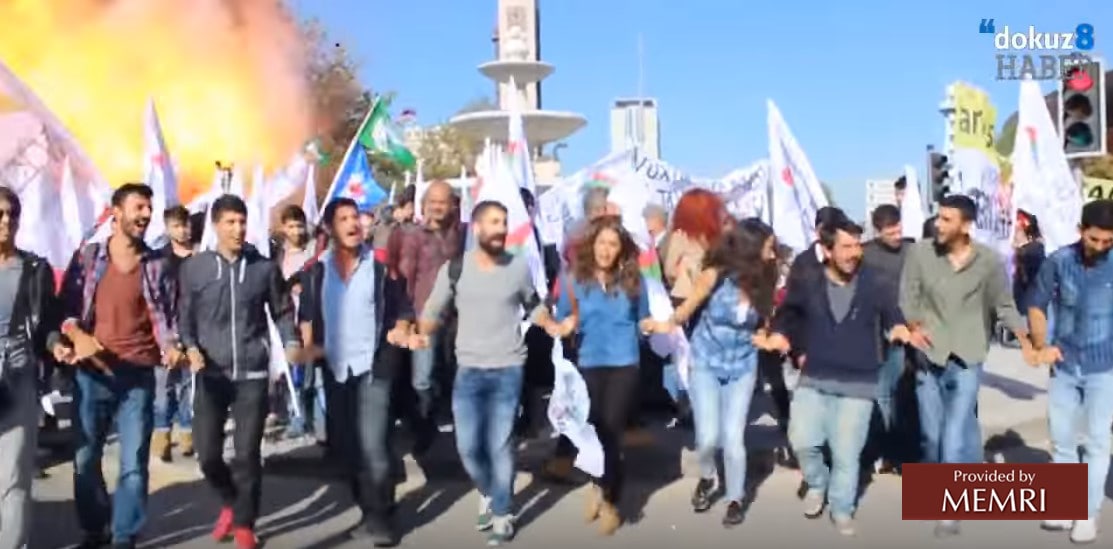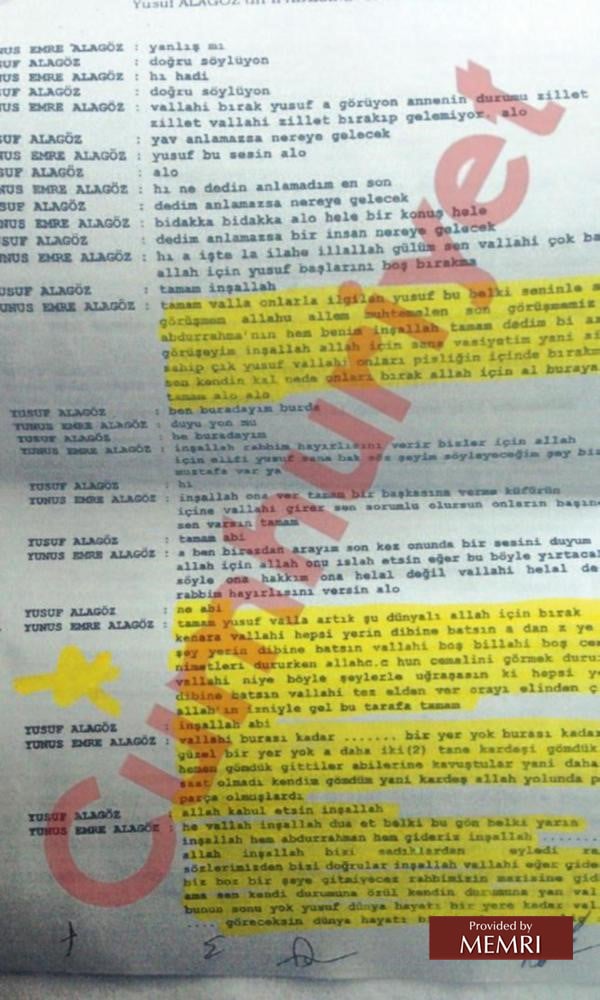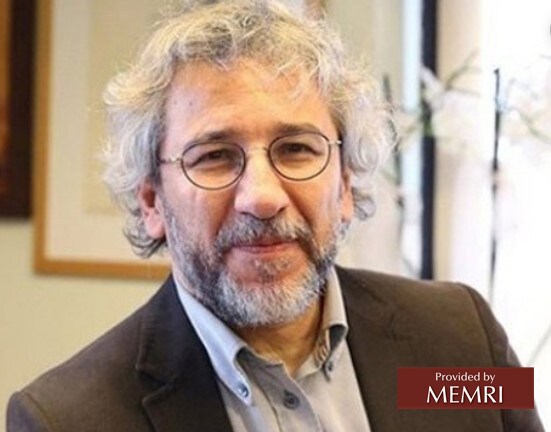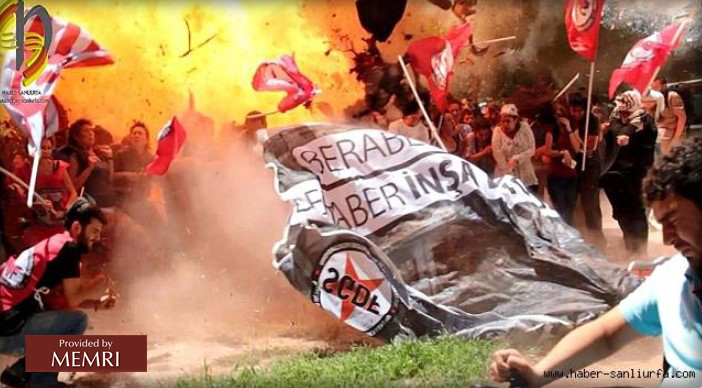W przemówieniu z 23 sierpnia 2019 r. w Sakarya w Turcji były turecki premier i minister spraw zagranicznych, Ahmet Davutoğlu, powiedział: „Gdyby [tureckie] akta kontrterroryzmu zostały otwarte, wielu ludzi nie mogloby nikomu spojrzeć w oczy. Ci, którzy krytykują nas dzisiaj, nie mogliby nikomu spojrzeć w oczy. Mówię wam. Kiedy w przyszłości zostanie napisana historia republiki tureckiej, jestem pewien, że jednym z najbardziej krytycznych kilkumiesięcznych okresów będzie [okres] od 7 czerwca do 1 listopada [2015]”[1]. 2 września Davutoğlu został wyrzucony z partii prezydenta Recepa Tayyip Erdoğana, rządzacej Adalet ve Kalkınma Partisi (AKP), której Davutoğlu był w pewnym momencie przewodniczącym[2]. Wicepremier, Numan Kurtulmuş, powiedział, że Davutoğlu został wyrzucony z partii konkretnie za wypowiedzi w przemówieniu z 23 sierpnia, ponieważ zostały one uznane za groźbę wobec AKP[3].
Davutoğlu nawiązywał w swoim przemówieniu do dwóch terrorystycznych zamachów w 2015 r., które wpłynęły na powtórne wybranie AKP Erdoğana, a którym władze nie zapobiegły, mimo że turecki wywiad miał uprzednią informację i ostrzeżenia o rychłym przeprowadzeniu co najmniej jednego z tych dwóch zamachów. Davutoğlu insynuuje, że pozwolono na ten zamach w celu wpłynięcia na wyniki wyborów na korzyść Erdoğana.
Pierwszy zamach miał miejsce 20 lipca 2015 r. w okręgu Suruç w Şanlıurfa, i zginęło w nim 34 ludzi. Drugi zamach miał miejsce 10 października w Ankarze i zginęło 104 ludzi. Choć w wyborach 7 czerwca, które odbyły się przed tymi dwoma zamachami, AKP straciła parlamentarną większość i stała przed perspektywą konieczności utworzenia koalicji z innymi partiami, w wyborach 1 listopada, które odbyły się po tych dwóch zamachach, AKP odzyskała parlamentarną większość, co pozwoliło jej pozostać przy władzy bez tworzenia koalicji.
Dokumenty rządowe, ujawnione po tych zamachach, „akta kontrterrorystyczne”, o których wspomniał Davutoğlu, pokazują, że rząd otrzymał ostrzeżenie o groźbie zamachu z dokładnym opisem szczegółów zamachu z 10 października w Ankarze i w celu zdobycia korzyści dla AKP i prezydenta Erdoğana nie podjął żadnych działań, by temu zapobiec. Rząd ponadto odrzucił rekomendacje inspektorów, by zbadać szefów bezpieczeństwa, w których jurysdykcjach działali zamachowcy i otworzyć sprawę kryminalną przeciwko dziennikarzom, którzy opublikowali informacje o tych wydarzeniach.
Należy zauważyć, że Ahmet Davutoğlu, który nazwał ten okres „jednym z najbardziej krytycznych kilkumiesięcznych okresów” w historii Turcji, nie jest dziennikarzem ani komentatorem, ale człowiekiem, który był premierem Turcji, ministrem spraw zagranicznych, członkiem parlamentu i przywódcą AKP. W rzeczywistości był premierem i przywódca partii w tym właśnie okresie pięciu miesięcy, o którym mówi.
Poniżej podajemy szczegóły obu zamachów i obu wyborów.
[Ciąg dalszy tekstu nie jest spolszczony]
June 2015 – AKP Loses Its Majority, Must Form Coalition; Attacks In Şanlıurfa, Ankara Follow
In the June 7, 2015 general election in Turkey, the AKP took only 40 percent of the vote,[4] losing, for the first time in its then 13-year rule, the parliamentary majority it needed to stay in power by itself, and so would have been forced to form a coalition government.[5] On July 20, at a rally of the Young Socialists Association Federation in the Suruç district of the Turkish city of Şanlıurfa, 20-year-old mechanical engineering student at Adıyaman University and Islamic State (ISIS) member Abdurrahman Alagöz[6] detonated his suicide vest, killing 34 people[7] and injuring 104.[8] On August 25, Turkey’s Supreme Electoral Council announced that, because a coalition government was not formed within 45 days of the June 7 election, another election would be held on November 1, 2015.[9]
 The July 20, 2015 attack in Şanlıurfa, Turkey, killed 34 people and injured 104 (source: Haber-sanliurfa.com).
The July 20, 2015 attack in Şanlıurfa, Turkey, killed 34 people and injured 104 (source: Haber-sanliurfa.com).
On October 10, at a rally of opposition party Halklarin Demokratik Partisi (HDP) and other political groups held at the Ankara railway station, suicide bombers Ömer Deniz Dündar and Yunus Emre Alagöz detonated their explosive vests, killing 103 and injuring 391, of whom 48 were severely injured, in the deadliest terror attack in Turkey’s modern history. Yunus Emre Alagöz was the older brother of Abdurrahman Alagöz, who attacked the rally in Şanlıurfa.[10] In the November 1 election, the AKP won enough votes to remain in power by itself without forming a coalition government.[11]
 The October 10, 2015 attack in Ankara killed 104 people and injured hundreds more (source: Dokuz8haber.net).
The October 10, 2015 attack in Ankara killed 104 people and injured hundreds more (source: Dokuz8haber.net).
Inspectors From Interior Ministry Find Government Was Warned Of Possible Attack And Did Not Take Precautions
Government documents published by Turkey’s Cumhuriyet daily, the country’s leading opposition daily, showed that Ömer Deniz Dündar had been arrested by Turkish police and, after being set free, went to Syria to receive training. Police had reportedly tapped a May 2015 phone call in which Yunus Emre Alagöz, speaking from Syria two months before the Şanlıurfa attack, said to his other younger brother Yusuf Alagöz: „This may be the last time I will talk to you… for Allah, my last will to you is to take care of the family, Yusuf… There is no place as beautiful as here, we buried two of our brothers… They were blown to pieces in the path of Allah.”[12]
 Turkish government transcript of phone conversation between Yunus Emre Alagöz and Yusuf Alagöz (source: Cumhuriyet.com.tr).
Turkish government transcript of phone conversation between Yunus Emre Alagöz and Yusuf Alagöz (source: Cumhuriyet.com.tr).
In an official report after the Ankara attack, a director at the Ankara branch of Turkey’s Directorate of Security, identified only by the initials A.A., accused the Milli İstihbarat Teşkilatı (MİT), which is Turkey’s intelligence organization, the Turkish armed forces, and the intelligence and counterterrorism units of Turkey’s Directorate of Security of not taking the necessary precautions before the attack. A.A. wrote in his statement: „The terrorists who carried out the explosion came on a route through Syria, Gaziantep, Osmaniye, Adana, and Aksaray to reach Ankara. When the terrorists were in the jurisdiction of the governor of Gaziantep, the MİT regional director for Gaziantep, the gendarmarie command for Gaziantep province, and the General Security Directorate for Gaziantep province, why were they not located and caught?”[13]
Inspectors from the Interior Ministry said in a preliminary report regarding the October 10 attack in Ankara that two days after the attack in Şanlıurfa, at a July 22 briefing at the Directorate of Security, the office of the governor of Ankara was warned that the Dokumacılar group, which had formed in 2013 in the outskirts of Adıyaman and in 2014 began recruiting for ISIS,[14] may attack Ankara. A wealth of intelligence had also been sent to the Ankara branch of the Directorate of Security after the July 20 attack in Şanlıurfa. These reports mentioned Yunus Emre Alagöz many times and said that the Dokumacılar group, of which Alagöz was a member, was targeting the HDP. A September 10 intelligence report said, as previous reports had done, that Ankara could be the target of an attack. While previous reports had warned that „places where people gathered in crowds” in general were potential targets for attacks, a September 14 report said that „a complex attack using multiple suicide bombers could take place at a rally/crowded place.”
Intelligence had also found that a cellphone associated with Alagöz and Mehmet Işık had been used in Ankara two days before the attack. Many reports saying that the AKP and HDP were potential targets had been distributed to employees of the Directorate of Security, and that those employees viewed the HDP as the potential target of an attack by ISIS.
Ankara Governor’s Office Refuses Investigation Recommended By Interior Ministry Inspectors
The inspectors from the Interior Ministry wrote in their report that ahead of the October 10 attack in Ankara there was this much intelligence concerning how Alagöz and Işık had entered Turkey and were communicating using telephone numbers in Ankara and how a rally at which the HDP was a participant could be the target of an attack and yet no observable precautions had been taken against such an attack. The inspectors therefore concluded that „there is public interest in opening a legal investigation” into: then provincial security director Kadri Kartal; former Ankara Intelligence branch Director Cihangir Ulusoy; Ankara Counterterror Police Branch Director Hakan Duman; former Ankara Security Branch Director Adem Arslanoğlu; and Ankara Counterterror Chief Emir Hüseyyin Özgür Gür. The office of the governor of Ankara refused any such investigation.[15]
Further, notice was given on April 15, 2017, that a criminal case had been opened against Evrensel.com editor-in-chief Fatih Polat, Cumhuriyet editor-in-chief Can Dündar, and reporters Tamer Arda Erşin, Cem Gürbetoğlu, and Kemal Göktaş, for publishing this information. Polat said of the case: „That’s great, but there is no crime here. Just journalism.” Can Dündar said: „Imagine witnessing a murder. You beguile the killer, the collaborator, and the lookout. You exclaim: 'This is the killer, that’s the lookout.’ And you are judged for giving away the killer and the lookout. This is the summary of the case opened against Cumhuriyet and Evrensel for its October 10 headlines.” The case was later dropped.[16] Can Dündar, who had previously been imprisoned for his reporting related to Turkish intelligence shipments of weapons into Syria, now lives in Germany[17] and a „capture resolution” has been issued for him in Turkey.[18] Göktaş referred to the attacks as a „bloody election game.”[19]
 Former Cumhuriyet editor-in-chief Can Dündar (left) and Evrensel editor-in-chief Fatih Polat (sources: Aksam.com.tr, Gazetekarinca.com).
Former Cumhuriyet editor-in-chief Can Dündar (left) and Evrensel editor-in-chief Fatih Polat (sources: Aksam.com.tr, Gazetekarinca.com).
[1] Tele1.com.tr/davutogluacikla-7-haziran-1-kasim-arasinda-neler-yasandi-suruc-ankara-78588, August 24, 2019.
[2] Yenicaggazetesi.com.tr/ihrac-tebligati-davutogluna-ulasti-248341h.htm, September 10, 2019.
[3] Haberler.com/numan-kurtulmus-ahmet-davutoglu-nun-ihrac-12407790-haberi, September 9, 2019.
[4] Sabah.com.tr/secim/7-haziran-2015-genel-secimleri, accessed August 27, 2019.
[5] Cumhuriyet.com.tr/haber/secim_2015/294008/Yeni_hukumet_nasil_kurulacak__iste_Koalisyon_senaryolari.html, June 7, 2015.
[6] Haberturk.com/gundem/haber/1105897-supheli-adiyamanli-teror-sucundan-araniyor, July 22, 2015.
[7] Web.archive.org/web/20151203120147/http://www.aljazeera.com.tr/haber/suructa-34-olum, August 14, 2015.
[8] Bbc.com/turkce/haberler/2015/07/150720_suruc_saldiri, August 27, 2019.
[9] Hurriyet.com.tr/gundem/ysk-baskani-erken-secim-tarihini-acikladi-1-kasim-2015-29901387, August 25, 2015.
[10] Cnnturk.com/turkiye/10-ekimde-oldurulenler-katliamin-3-yilinda-ankara-gari-onunde-anildi, November 12, 2018.
[11] Secim.haberler.com/2015, November 1, 2015.
[12] Cumhuriyet.com.tr/haber/turkiye/389483/Polis_bombacilari_biliyordu.html, October 17, 2015.
[13] Evrensel.net/haber/277374/guvenlik-sube-amirinden-10-ekim-itirafi-mit-tsk-ve-egm-onlem-almadi, April 12, 2016.
[14] Internethaber.com/dokumacilar-grubu-nedir-liderleri-kimdir-1478571h.htm, October 14, 2015.
[15] Evrensel.net/haber/277521/ankara-katliaminin-bir-tek-saati-bilinmiyormus, April 14, 2016.
[16] Cumhuriyet.com.tr/haber/turkiye/905343/10_Ekim_katliami_haberlerine_iliskin_acilan_dava_dusuruldu.html, January 15, 2018.
[17] Bolgegundem.com/can-dundar-kimdir-can-dundar-nerede-yasiyor-564820h.htm, September 29, 2018.
[18] Sabah.com.tr/gundem/2018/12/06/son-dakika-can-dundar-hakkinda-yakalama-karari, December 5, 2018.
[19] Tr.boell.org/tr/2015/11/05/kanli-bir-secim-oyunu, November 5, 2015.









